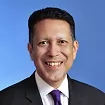- within Insolvency/Bankruptcy/Re-Structuring topic(s)
On February 8, 2022, the National College Players Association (NCPA), an advocacy group for college athletes, filed unfair labor practice charges before the National Labor Relations Board (NLRB) against the National Collegiate Athletic Association (NCAA) and other heavyweights in collegiate athletics. The NCPA's charges allege that the NCAA and others misclassify student athletes as amateurs and ask the NLRB to rule that student athletes are employees under the National Labor Relations Act (NLRA).
Just last fall, the General Counsel of the NLRB started looking for cases through which to advance the General Counsel's position that student athletes at private (and perhaps public) educational institutions should be considered employees under the NLRA.1 The NCPA's charges could provide such a case.
Background
The NLRA confers its protections-including the rights to unionize, demand bargaining, and engage in economic pressure such as walk outs-upon "any employee,"2 which agency rules define to mean any person "who performs services for another" and is "subject to the other's control or right of control."3 The NCAA has long treated student athletes as amateurs beyond the purview of these protections. For its part, the NLRB declined to address the issue of whether college athletes are employees under the NLRA in a 2015 case involving Northwestern University, reasoning that exercising jurisdiction over student athletes at private educational institutions would not promote the NLRA's goals given that the NCAA is "dominated" by public universities that fall outside the NLRA's statutory scope.4
Against this backdrop, the US Supreme Court's June 2021 opinion in NCAA v. Alston5 revisited the student-athlete/employee question once more. In Alston-a class action brought by certain current and former Division I athletes against the NCAA and several major athletic conferences-the Supreme Court held that the NCAA's restrictions on education-related compensation for student athletes, which the NCAA defended based on its notion of amateurism in college athletics, violated the Sherman Act's prohibition on undue restraints of trade.6
Three months later, the NLRB's General Counsel issued a memorandum asserting that student athletes at private educational institutions are employees under the NLRA and thus entitled to the NLRA's protections, notwithstanding the NLRB's decision in the Northwestern case.7 The General Counsel relied in part on Justice Kavanaugh's concurrence in Alston, which suggested that disputes over student athlete compensation could be resolved through collective bargaining.8 The General Counsel relied also on her own assessment that student athletes perform a valuable service for the NCAA and their individual institutions; that they receive significant compensation in the form of tuition, room, board, and financial stipends; and that the NCAA and the athletes' individual institutions control the terms and conditions of their "employment" by issuing various rules and regulations.9
The General Counsel further indicated her intention to pursue her position-which must be adopted by the NLRB in order to have the force of law-in an appropriate case, on the theory that the NCAA's refusal to classify student athletes as employees violates the NLRA by chilling students' rights to organize.10 To this end, the General Counsel advised that "cases involving the misclassification of Players at Academic Institutions should be submitted" for review.11
The NCPA Complaint
Following the General Counsel's lead, on February 8, 2022, the NCPA filed charges with the NLRB on behalf of certain Division I student athletes and against the NCAA, the Pacific-12 (PAC-12) Conference, the University of California-Los Angeles (UCLA), and the University of Southern California (USC).12 The NCPA's charges allege that the NCAA and other defendant institutions have "repeatedly misclassified employees as 'student-athlete' nonemployees" in order to circumvent the NLRA.13 Assuming the General Counsel decides to issue a complaint in these matters, they will be tried before an administrative law judge, whose decision could then be appealed to the full NLRB.
Analysis
The NCPA's charges raise three issues concerning the status of student athletes. The first issue, which the NLRB declined to address in the Northwestern case, is whether Division I student athletes at private educational institutions-here, USC-are "employees" of their respective institutions within the meaning of the NRLA. Incidentally, the issue of whether student athletes are "employees" entitled to statutory protections is also currently being litigated under the Fair Labor Standards Act in a case in which a district court in the Eastern District of Pennsylvania recently denied the NCAA and other defendants' motion to dismiss.14 The Court of Appeals for the Third Circuit agreed to decide the issue on interlocutory appeal in the case earlier this month.15
The second issue is whether, assuming that student athletes are "employees" under the NLRA, the NCAA (and major athletic conferences) are joint employers together with the athletes' private educational institutions. The General Counsel's recent memorandum expressed interest in pursuing such a "joint employer theory of liability," pointing to the NCAA's exercising "strict control" over college athletes by establishing eligibility standards and imposing unilateral contract terms, among other things.16
Third, the NCPA's complaint tees up the issue of whether major athletic conferences qualify as joint employers even when some of their member schools are public educational institutions-as with, in this instance, UCLA, a member of the PAC-12 conference. The General Counsel's prior memorandum weighed in on this issue as well, stating that, at least in some circumstances, "exerting jurisdiction over the conference is appropriate even where some member institutions are public."17
In short, the NCPA's filing provides a vehicle for the General Counsel to advance her position that college student athletes are employees entitled to the rights to unionize and to engage in collective bargaining under the NLRA. If Alston and the General Counsel's September 29, 2021, memorandum raised significant questions about the status of student athletes, the NCPA's charges may soon bring about some answers.
Footnotes
1 Gen. Counsel Mem. 21-08.
2 29 U.S.C. § 152(3). Contact Us
3 Boston Med. Ctr. Corp., 330 NLRB 152, 160 (1999).
4 Northwestern University, 362 NLRB 1350 (2015); see also Columbia Univ., 364 NLRB No. 90, slip op. at 7 n.56 (2016).
5 141 S. Ct. 2141 (2021).
6 Id. at 2151-53, 2158-59; see also 15 U.S.C. § 1.
7 Gen. Counsel Mem. 21-08.
8 Alston, 141 S. Ct. at 2168 (Kavanaugh, J., concurring).
9 Gen. Counsel Mem. 21-08 at 3-5.
10 Id. at 4.
11 Id.
12 NCPA Compl., Feb. 8, 2022, https://aboutblaw.com/1Da.
13 Id. at 2.
14 Johnson v. NCAA, No. CV19-5230, 2021 WL 3771810 (E.D. Pa. Aug. 25, 2021), motion to certify appeal granted, No. CV19-5230, 2021 WL 6125095 (E.D. Pa. Dec. 28, 2021).
15 See Johnson et al. v. NCAA et al., No. 22-1223 (3d Cir. filed Feb. 8, 2022).
16 Gen. Counsel Mem. 21-08 at 9 n.34.
17 Id.
The content of this article is intended to provide a general guide to the subject matter. Specialist advice should be sought about your specific circumstances.




